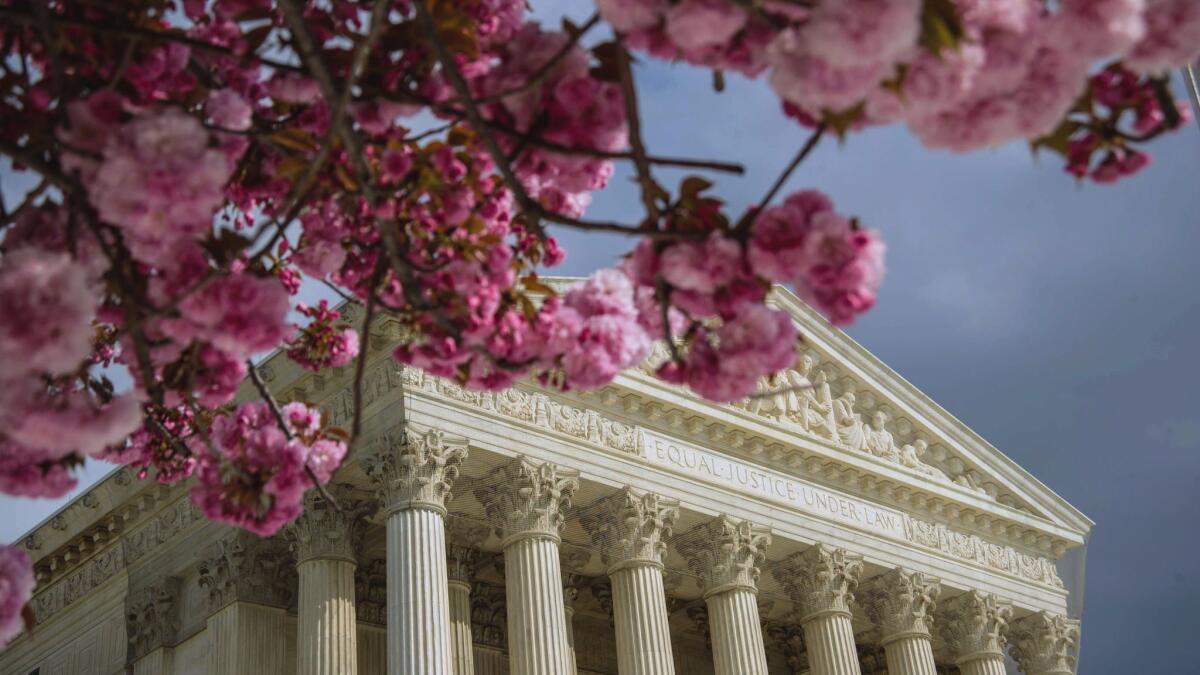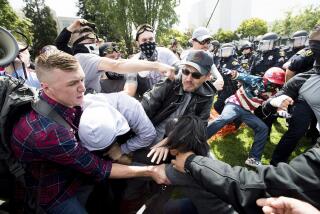Supreme Court rules race bias among jurors may require a new trial

- Share via
Reporting from WASHINGTON — The Supreme Court took a strong new stand against racial bias in jury rooms, ruling for the first time that reports of racist comments by jurors may require setting aside a verdict and holding a new trial.
Justice Anthony M. Kennedy, announcing the court’s decision Monday, wrote that the “imperative to purge racial prejudice from the administration of justice” requires setting aside the traditional rule that bars judges from second-guessing what went on in the jury room.
The 5-3 decision announced a limited exception to that rule against second-guessing juries. The new rule covers cases in which “one or more jurors made statements exhibiting overt racial bias that cast serious doubt on the fairness and impartiality of the jury’s deliberations and resulting verdict.”
Kennedy did not say exactly what should happen in such cases, other than that the trial judge should look into the matter, question the former jurors and then decide whether a new trial is called for.
The dissenters, led by Justice Samuel A. Alito, called the decision “well intentioned” but unwise.
“Today, with the admirable intention of providing justice for one criminal defendant, the court not only pries open the door; it rules that respecting the privacy of the jury room, as our legal system has done for centuries, violates the Constitution,” Alito said. “This is a startling development.”
The majority ruled in favor of a Mexican American man who was convicted of sexually assaulting two teenage girls in the bathroom of a horse-race track in Colorado.
The identity of the assailant was in doubt, but jurors convicted Miguel Angel Pena-Rodriguez, a track worker, of unlawful sexual contact and harassment.
After the trial, two jurors told an attorney that a third juror was formerly in law enforcement had said that “Mexican men had a bravado that caused them to believe” they could get away with sexually assaulting women.
“I think he did it because he’s Mexican, and Mexican men take whatever they want,” the juror said, according to the other jurors’ reports.
The judge reviewed their sworn statements, but said Colorado law prohibited reopening a trial based on what was said in the jury room. The Colorado Supreme Court agreed and upheld the so-called “no impeachment rule.”
The Supreme Court overturned that decision in Pena-Rodriguez v. Colorado.
“In this case, the alleged statements by a juror were egregious and unmistakable in their reliance on racial bias,” Kennedy wrote. The one juror “deployed a dangerous racial stereotype to conclude the (defendant) was guilty and his alibi witnesses should not be believed, but he also encouraged other jurors to join him in convicting on that basis.”
The court sent the case back to the Colorado courts to decide how to proceed.
Justices Ruth Bader Ginsburg, Stephen G. Breyer, Sonia Sotomayor and Elena Kagan agreed with Kennedy. Joining Alito in dissent were Chief Justice John Roberts and Justice Clarence Thomas.
On Twitter: @DavidGSavage
ALSO
Supreme Court puts off ruling on rights of transgender students
Trump administration announces new version of its travel ban
House Republicans ready an ambitious legislative push to repeal Obamacare
More to Read
Sign up for Essential California
The most important California stories and recommendations in your inbox every morning.
You may occasionally receive promotional content from the Los Angeles Times.










